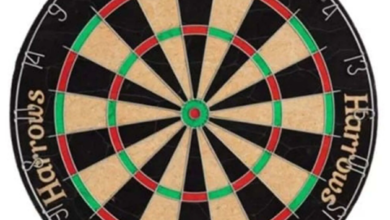What are painful periods?

Painful periods, or dysmenorrhea, are menstrual cramps that occur just before or during menstruation. The pain can range from mild to severe and last for a few hours up to several days. The pain is often described as cramping or aching and may be accompanied by other symptoms such as nausea, diarrhea, or fatigue.
Primary dysmenorrhea is the most common type of painful period caused by the natural contraction of the uterus as it sheds its lining during menstruation. Secondary dysmenorrhea is less common and is caused by an underlying medical condition, such as endometriosis or uterine fibroids.
Treatment for painful periods may include over-the-counter pain relievers such as ibuprofen or naproxen, heating pads, exercise, and relaxation techniques. In some cases, hormonal birth control may be prescribed to help regulate menstrual cycles and reduce pain.
Suppose you experience severe or persistent pain during your periods. In that case, it’s important to talk to a healthcare provider to rule out any underlying medical conditions and determine the appropriate treatment plan. You can consult from best gynecologist in Islamabad if you suffer from painful periods.
Treatment for painful periods
Treatment for painful periods, also known as dysmenorrhea, may depend on the severity of the pain and the underlying cause. Here are some common treatment options:
1. Over-the-counter pain relief
Nonsteroidal anti-inflammatory drugs (NSAIDs) such as ibuprofen or naproxen can help relieve menstrual cramps by reducing inflammation and prostaglandin production. Acetaminophen can also be used for pain relief, but it doesn’t have anti-inflammatory effects.
2. Hormonal birth control
Hormonal birth control methods such as pills, patches, rings, or intrauterine hormonal devices (IUD) can help regulate menstrual cycles and reduce the severity of menstrual cramps.
3. Heat therapy
Applying heat to the lower abdomen with a heating pad, warm towel, or hot water bottle can help relax muscles and reduce pain.
4. Exercise
Regular exercise can help reduce menstrual cramps by improving blood flow, reducing inflammation, and promoting the release of endorphins (natural painkillers).
5. Relaxation techniques
Techniques such as deep breathing, meditation, or yoga can help reduce stress and tension, which can exacerbate menstrual cramps.
If painful periods are interfering with your daily activities or significantly impacting your quality of life, it’s important to talk to a healthcare provider to determine the underlying cause and the appropriate treatment plan. In some cases, surgery may be recommended to treat underlying conditions such as endometriosis or uterine fibroids.
Natural remedies for dysmenorrhea
Here are some natural remedies that may help relieve menstrual cramps associated with dysmenorrhea:
1. Heat therapy
Applying heat to the lower abdomen with a heating pad, warm towel, or hot water bottle can help relax muscles and reduce pain.
2. Exercise
Regular exercise can help reduce menstrual cramps by improving blood flow, reducing inflammation, and promoting the release of endorphins (natural painkillers).
3. Relaxation techniques
Techniques such as deep breathing, meditation, or yoga can help reduce stress and tension, which can exacerbate menstrual cramps.
4. Herbal remedies
Certain herbs such as ginger, cinnamon, and turmeric may have anti-inflammatory and pain-relieving properties that can help relieve menstrual cramps. These can be consumed as supplements or added to foods and drinks.
5. Dietary changes
Eating a balanced diet that is rich in whole foods, fruits, and vegetables and low in processed foods, sugar, and caffeine can help reduce inflammation and improve overall health, which can, in turn, help reduce menstrual cramps. Get your appointment and treatment plan from best gynecologists in Lahore.
It’s important to talk to a healthcare provider before trying any new natural remedies, especially if you have any underlying medical conditions or are taking medications. Natural remedies may also not be effective for everyone and may not provide as much relief as medical treatments.




